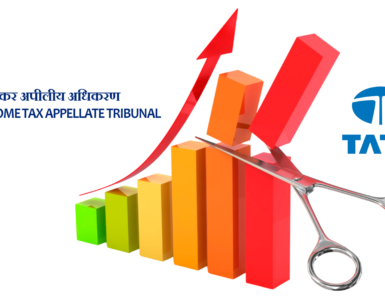Flipkart-Walmart deal is the most talked about acquisition news in the past months. Officially, Walmart has now completed its 77% acquisition in Flipkart and has also got a go ahead from Competition Commission of India. But amidst the good news, is a bad one also where the retail traders across India have reportedly got affected and offended, pertaining to the new threat posing in front of them as the foreign giant is trying to enter retail market of India directly or indirectly.
Let us go through the sequence of events in this Article in which the traders have taken legal recourse against the E-Commerce Unicorn and what are the laws in context.
Competition Act, 2002 and Power of Competition Commission of India (CCI)
Competition Act, 2002 provides for establishment of a Commission to prevent practices having adverse effect on competition among other aims. Legally, for any Acquisition (termed as a ‘combination’ under the Competition Act, 2002) taking place involving entities having presence in India and fulfilling the turnover and assets size limit as prescribed, it needs to get an approval from the Competition Commission of India (CCI). In its last leg of deal, Flipkart-Walmart fitting into the said criteria, had approached the CCI for its in-principle approval in the May 2018.
What is a Combination?
As per Section 5 of the Competition Act, A Combination is defined as, ‘The acquisition of one or more enterprises by one or more persons or merger or amalgamation of enterprises shall be a combination of such enterprises and persons or enterprises’; subject to further turnover and assets criteria specified in the Competition Act.
Section 6 of the Competition Act empowers the CCI to regulate ‘Combinations’, and specifically states that combinations which cause or are likely to cause an appreciable adverse effect on competition within the relevant market in India shall be considered as void.
Indian Traders’ move against the Acquisition & Legalities in question
In order to avoid this huge competition, All India Online Vendors Association (AIOVA), which represents over 3,000 online sellers had filed a petition with the CCI in early May 2018. Confederation of All India Traders (CAIT) also filed a petition with the CCI on 28th May 2018 for the following alleged violations done by Flipkart under Indian laws and therefore pleaded to not allow the deal to successfully close: –
- Predatory pricing/Deep Discounting
- Concept of Preferred Sellers on Flipkart
- Entry of Walmart into retail sector
Predatory price has been defined in an Explanation to Section 4 (Abuse of Dominant Position) of the Competition Act as “the sale of goods or provision of services, at a price which is below the cost, as may be determined by regulations, of production of the goods or provision of services, with a view to reduce competition or eliminate the competitors”.
The petition filed by CAIT advocate Abir Roy alleged that Flipkart is a “combination of predation, exclusive tie-ups and of preferential sellers where even online vendors face discriminatory conditions” and further alleged that “there will be denial of market access to non-preferred sellers”.
This argument comes in the light of Sec 4 (1)(c) of Competition Act which specifically bars any combination of enterprises or groups which indulges in practice or practices resulting in denial of market access in any manner.
Additionally, Section 3 (4) which speaks about Anti-competitive agreements specifies that any agreement amongst enterprises or persons, including a tie-in arrangement, causes or is likely to cause an appreciable adverse effect on competition in India shall not be allowed.
The petition filed by CAIT further stated that Flipkart is in a dominant position in India and that this transaction would result in vertical integration, which no other player in India has. Abuse of dominant position is barred by the Competition Act vide Section 4 which states that: –
There shall be an abuse of dominant position if an enterprise or a group (a) directly or indirectly, imposes unfair or discriminatory— (i) condition in purchase or sale of goods or service; or (ii) price in purchase or sale (including predatory price) of goods or service.
CAIT also filed a complaint with the Directorate of Enforcement (ED) on June 1 against the repeated violations of Flipkart of the Foreign Direct Investment norms, as under the Foreign Exchange Management Act, the ED is authorized for adjudicating FEMA matters.
Meanwhile, the CCI vide its order dated 8th of August 2018 sanctioned the Flipkart-Walmart deal thereby rejecting the contentions of the traders’ associations. The legal grounds on which the contentions were rejected has been laid down below: –
- No Vertical overlap as Walmart and Flipkart both deal in B2B/Cash & Carry wholesale trade market and online ecommerce marketplace (not retail).
- An insignificant horizontal overlap due to: –
- Strong presence of both the entities in different segments of B2B market (ex: Walmart dealing mainly in Grocery, while Flipkart popular in electronic products market)
- Organized sector in B2B sales contributes to only 7% of the total market and therefore market capture would be less than 5%
- Already prevalent market players like Reliance Retail, Metro Cash and Carry, Amazon wholesale etc.
- Contentions raised by Trade bodies were involving legal aspects w.r.t. Foreign Direct Investment norms and other commercial aspects not within the ambit of regulatory authority of CCI.
- Deep discounting or preferential treatment to sellers within the scope of CCI regulation but should be a result of the combination and not prevalent before such proposed combination. Flipkart already practices these strategies.
Provisions in Foreign Direct Investment Policy
Guidelines to Foreign Direct Investment (FDI) scheme Press note no. 3 (2016 series) states conditions for foreign direct investment in e-commerce companies. Point no. 2.3 (v) says, an e-commerce entity will not permit more than 25% of the sales value on financial year basis affected through its marketplace from one vendor or their group companies.
Praveen Khandelwal, national secretary general at CAIT has alleged that 80 percent of the sales on Flipkart’s platform takes place through WS Retail Services Pvt Ltd, a former subsidiary of Flipkart.
The same press note (Point No. 2.2) also expressly bars Inventory based model for E-commerce companies having or inviting Foreign Direct Investment.
CAIT had alleged that Walmart would sell its inventory on the platform of Flipkart.com either directly or through a web of associated preferred sellers which was prohibited by the Government.
What is Inventory based model?
Inventory based model of e-commerce means an e-commerce activity where inventory of goods and services is owned by e-commerce entity and is sold to the consumers directly.
The Press note also says that “E-commerce entities providing marketplace will not directly or indirectly influence the sale price of goods or services and shall maintain level playing field”.
Till the month of August 2018, no adjudication was done by the ED regarding FDI compliances and hence, CAIT finally filed a Mandamus Writ petition in the Delhi High Court to direct the ED to investigate the business model of online retailer Flipkart on the 31st of August 2018.
What is a writ?
A Writ is a direction, or an order given by the Supreme Court or the High Courts authorized under Article 32 and 226 of the Constitution respectively on the matters involving fundamental and constitutional rights being infringed.
Taking into account the repeated warnings of preventing Flipkart of closing a successful deal with Walmart by the trade bodies, Walmart had already filed a ‘Caveat’ on 28th August 2018 in high courts of Delhi, Bombay, Bengaluru and Ahmedabad. A writ of mandamus is an order from a court to an inferior government official ordering the government official to properly fulfill their official duties or correct an abuse of discretion
What is a Caveat?
It simply means a warning; and is filed by a party which claims a right to appear in the Court if an application for suit has been filed or, is expected to be filed against that person. The Court sends the notice of the application to the caveator so that any ex-parte order is not given by the Court against the caveator without his knowledge (Sec 148A of Civil Procedure Code 1908).
Delhi High Court disposed of the Writ application(W.P.(C) 9332/2018) on 5th September on the representation made on behalf of ED saying they will probe into the matter if required and existing authorities in Bangalore having jurisdiction (Flipkart’s regd. office is in Bangalore) may have already involved in the investigation.
NCLAT – Last Resort
Not approving the on-goings in the present case, CAIT finally decided to approach the National Company Law Appellate Tribunal against the decision of CCI.
On 6th September, NCLAT passed an order on the appeal made by CAIT. The order mentioned the intention of the authority of knowing the manner in which Walmart and Flipkart were to do their business. The latter were ordered to present their reply by 20th September. The case shall be admitted on 5th of October 2018 after filing of reply statements by both the parties.
What should be the way forward?
On the outset, it is evident that it is the traditional approach of the traders towards retail business which needs to change. Considering the global and domestic evolution around online markets, customers now have access to varied products/services and competitive prices to choose from. A liberalised approach of the government towards FDI, in e-commerce, wholesale and retail business is attracting new international entrants every day; and it is essential for the overall development of Indian economy as well. Hence, to be relevant in the current market scenario is a challenging task for everyone.
Though deep discounting and indirect inventory management has fetched Flipkart negative comments from the authorities earlier also, it remains to be seen what clarity can be brought about by the Government in the e-commerce governing norms and how it can take steps to support the unorganised segment across India.




